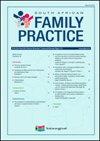Enhancing sexual health in primary care: Guidance for practitioners
IF 1.2
Q2 MEDICINE, GENERAL & INTERNAL
引用次数: 0
Abstract
Sexual health is an integral aspect of overall health and well-being and is fundamental to the sustainable development of societies worldwide. The World Health Organization (WHO) defines sexual health as ‘a state of physical, emotional, mental, and social well-being in relation to sexuality’. However, addressing sexual health has been afforded low priority in primary healthcare systems. Primary care practitioners (PCPs), who play a crucial role in providing comprehensive care to communities, receive little training on screening and managing individuals with sexual health problems. The scope of services ranges from education, prevention and screening, to management of sexual health matters. Patients with noncommunicable diseases (NCDs), such as stroke, cancer, heart disease and diabetes, are at increased risk for sexual dysfunction, possibly because of common pathogenetic mechanisms, such as inflammation. This is of considerable importance in the sub-Saharan African context where there is a rapidly increasing prevalence of NCDs, as well as a high burden of HIV. Strategies to improve the quality of sexual health services in primary care include creating a safe and non-judgemental practice environment for history-taking among gender-diverse populations, utilising effective screening tools aligned with the Diagnostic and Statistical Manual of Mental Disorders (DSM-5) criteria for sexual dysfunctions. In particular, the International Consultation on Sexual Medicine (ICSM -5) diagnostic and treatment algorithm can empower primary care providers to effectively address sexual dysfunctions among patients and improve the quality of care provided to communities regarding sexual and reproductive health.加强初级保健中的性健康:从业人员指南
性健康是整体健康和福祉不可或缺的一个方面,也是全世界社会可持续发展的基础。世界卫生组织(WHO)将性健康定义为 "与性有关的身体、情感、精神和社会福祉状态"。然而,在初级保健系统中,解决性健康问题的优先级一直很低。初级保健从业人员(PCPs)在为社区提供全面保健方面发挥着至关重要的作用,但他们几乎没有接受过关于筛查和管理有性健康问题的个人的培训。服务范围包括教育、预防和筛查,以及性健康问题的管理。中风、癌症、心脏病和糖尿病等非传染性疾病(NCDs)患者发生性功能障碍的风险增加,这可能是因为炎症等共同的致病机制。这在撒哈拉以南非洲地区相当重要,因为那里的非传染性疾病发病率迅速上升,而且艾滋病毒感染率很高。提高初级保健中性健康服务质量的策略包括:为不同性别人群的病史采集创造一个安全、非评判性的实践环境,利用符合《精神疾病诊断与统计手册》(DSM-5)性功能障碍标准的有效筛查工具。特别是,国际性医学咨询会(ICSM-5)的诊断和治疗算法可以增强初级保健提供者的能力,有效解决患者的性功能障碍问题,提高为社区提供的性健康和生殖健康保健的质量。
本文章由计算机程序翻译,如有差异,请以英文原文为准。
求助全文
约1分钟内获得全文
求助全文
来源期刊

South African Family Practice
MEDICINE, GENERAL & INTERNAL-
CiteScore
1.50
自引率
20.00%
发文量
79
审稿时长
25 weeks
期刊介绍:
South African Family Practice (SAFP) is a peer-reviewed scientific journal, which strives to provide primary care physicians and researchers with a broad range of scholarly work in the disciplines of Family Medicine, Primary Health Care, Rural Medicine, District Health and other related fields. SAFP publishes original research, clinical reviews, and pertinent commentary that advance the knowledge base of these disciplines. The content of SAFP is designed to reflect and support further development of the broad basis of these disciplines through original research and critical review of evidence in important clinical areas; as well as to provide practitioners with continuing professional development material.
 求助内容:
求助内容: 应助结果提醒方式:
应助结果提醒方式:


